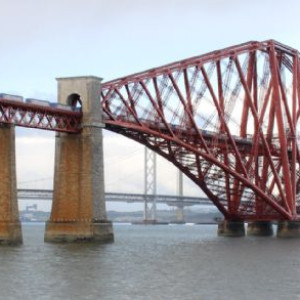Government urged to ‘supercharge rail freight growth’

 Following a new report commissioned by the rail industry body Rail Partners, the freight sector has called on the Government to 'supercharge rail freight growth and help deliver its national missions' in the Plan for Change, which includes 'kickstarting economic growth, achieving 'net zero', and building new houses'. Rail Partners says the report -- A Greener Track -- shows that market conditions have become increasingly challenging for rail freight operators.
Following a new report commissioned by the rail industry body Rail Partners, the freight sector has called on the Government to 'supercharge rail freight growth and help deliver its national missions' in the Plan for Change, which includes 'kickstarting economic growth, achieving 'net zero', and building new houses'. Rail Partners says the report -- A Greener Track -- shows that market conditions have become increasingly challenging for rail freight operators.
"In the last decade, the cost of moving goods by rail has risen over three-times faster than by road, and to secure rail freight growth, the widening gap between road and rail freight costs must be addressed. The Government has committed to setting a rail freight growth target, but concrete actions are needed to help rail freight compete with more-carbon-intensive modes of transport.
"Rail freight performs a critical economic and environmental function for Great Britain, transporting millions of tonnes of goods and materials around the country every year. Every tonne of freight transported by rail freight produces 76% less CO2 than the equivalent transport by road. Rail freight also helps to reduce road congestion, with a single service removing up to 129 HGV movements."
Long-term targetsHe continued: "A broad consensus among politicians and industry that more goods should be moved by rail has led to successive governments committing to set long-term targets to grow rail freight.
As a result, there are now regulated targets to grow freight by 7.5% in England and Wales, and by at least 8.7% in Scotland by 2029."
Andy Bagnall, Rail Partners' chief executive, added: "Rail freight is one of the lowest-carbon forms of land transport, but with rail costs rising three-times faster than road, Britain increasingly risks losing out on the benefits the sector has to offer in terms of growth and supporting Government's wider missions; and while freight-operating companies want to invest in the UK and work with the Government to make rail more competitive, rail freight growth will not happen on its own. Without measures to address the widening cost gap between rail and road, freight customers could be priced out of making the right decision for the environment and the economy." John Smith, GB Railfreight's[2] chief executive, concluded: "There is broad consensus on the economic, environmental and societal benefits of rail freight to us all, and this report sets out the need for a level playing field between different modes of freight transport to drive growth.
Government policy decisions, such as the freeze on fuel duty, continue to benefit road freight over rail freight.
As rail freight operators, we want to continue to invest in the UK and stand ready to work with the Government on policies that will make rail more competitive to support growth and the delivery of its missions."
[1]References
- ^ Rail Partners (www.railpartners.co.uk)
- ^ GB Railfreight's (www.gbrailfreight.com)